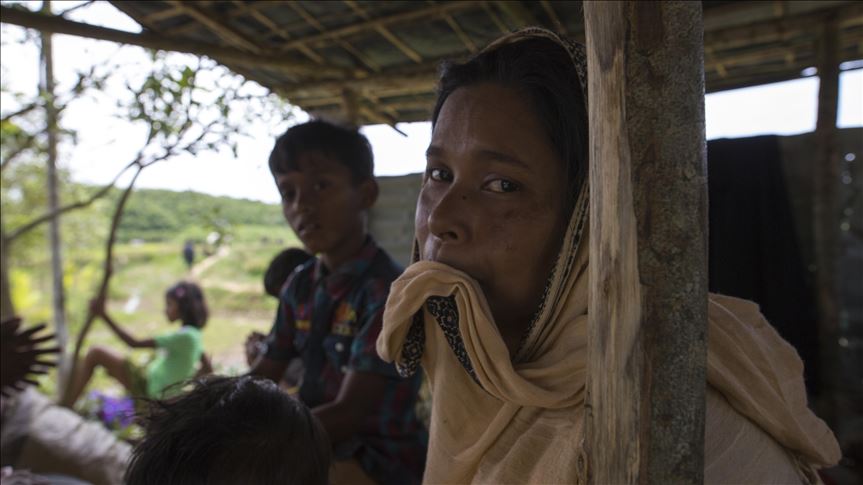Bangladesh mulls backtrack on Rohingya relocation plan
Top official says main target is to repatriate Rohingya to original homeland, in Rakhine state, Myanmar

DHAKA, Bangladesh
Bangladesh announced on Sunday that it may drop previous plans to move 100,000 Rohingya refugees to a remote island located in the Bay of Bengal in the country's south.
"Our main target is to repatriate Rohingya to their original homeland, Myanmar’s Rakhine state," Foreign Minister Abul Kalam Abdul Momen on Sunday told reporters in the capital Dhaka following a meeting with the Chinese Ambassador to Bangladesh, Li Jiming.
Lauding recent development projects on the islet of Bhasan Char and plans to turn it into a business hub and "new Bangladesh," Momen said Bangladeshi citizens left homeless due to river erosion or other reasons should instead be settled there.
Bhasan Char, a remote islet where the Bangladesh announced in 2018 it would resettle 100,000 Rohingya refugees who fled persecution in Myanmar, is measured 15,000 acres at low tide and 10,000 acres at high tide, according to the government sources.
The scheme had elicited concerns that the site was less than ideal. Dhaka since said it undertook projects to improve living conditions on the islet.
"We all are agree not to send Rohingya there. Now we place our recommendations to the government for final decision on alternative use of Bhasan Char project," said Momen.
- Persecuted people
The Rohingya, described by the UN as the world's most persecuted people, have faced heightened fears of attack since dozens were killed in communal violence in 2012.
According to Amnesty International, more than 750,000 Rohingya refugees, mostly women and children, have fled Myanmar and crossed into Bangladesh after Myanmar forces launched a crackdown on the minority Muslim community in August 2017, pushing the number of persecuted people in Bangladesh above 1.2 million.
Since Aug. 25, 2017, nearly 24,000 Rohingya Muslims have been killed by Myanmar’s state forces, according to a report by the Ontario International Development Agency (OIDA).
More than 34,000 Rohingya were also thrown into fires, while over 114,000 others were beaten, said the OIDA report, titled "Forced Migration of Rohingya: The Untold Experience".
Some 18,000 Rohingya women and girls were raped by Myanmar’s army and police and over 115,000 Rohingya homes were burned down and 113,000 others vandalized, it added.








